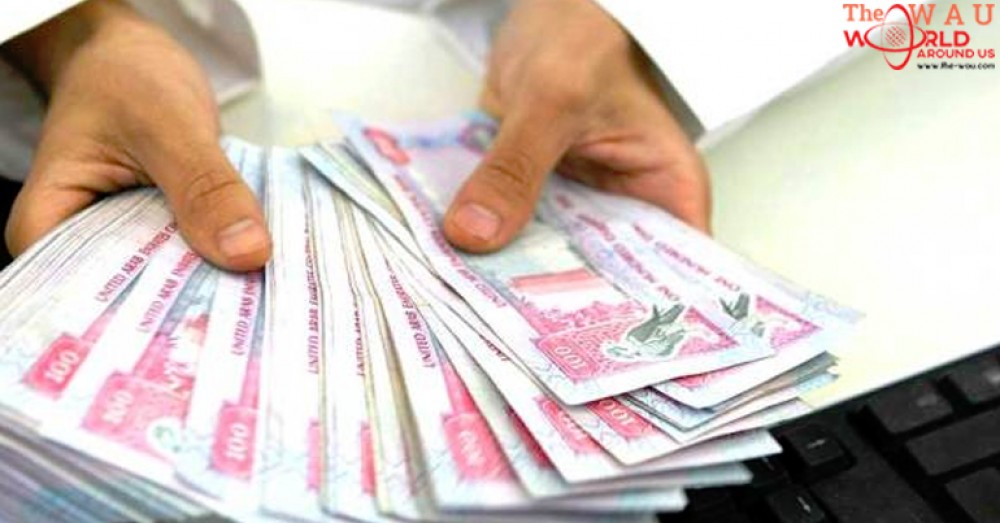Following a series of major changes relating to taxation, legislation and economic performance over the last 12 months, Gulf Business explores how the regional pay packet has been impacted
Just as the Gulf economies have undergone dramatic changes in recent months, including the introduction of value added tax and fee increases, we too felt it was time to shake up our annual Salary Survey.
While the format has served us well over the years, and offered a unique insight into the compensation expats could expect for a number of key roles, it was increasingly apparent that the included positions were not entirely reflective of the job market as we move towards the end of the decade.
In addition, a focus on largely management roles meant it offered less insight for the majority of the workforce, who are further down the ladder.
Our new streamlined Salary Survey for 2018 aims to address these issues in a simplified format that should prove relevant for the years to come as the gaps between Asian, Arabic and Western
wages shrink.
Among the most noticeable changes has been the inclusion of the new lower tier positions such as human resources executive, logistics executive, sales executive and receptionist.
This meant that the overall average monthly salary this year of $8,083 is 26.3 per cent lower than that seen last year, with some quite substantial differences in some countries.
For example, the Saudi average was down 34.21 per cent, the Kuwait average 27.73 per cent, the UAE average 26.74 per cent, while for Bahrain it was down 25.18 per cent and Oman 25.2 per cent.
The use of a single survey for expatriates rather than three split by Asian, Arabic and Western also meant salaries were down considerably for some positions but, interestingly, not all.
Towards the top of the table, the monthly average salary for an IT manager – compared to an average of the three expat groups from last year – was down 39.17 per cent from $12,430 to $7,561.
It was a similar story for the editor position, down 24.68 per cent from $6,535 to $4,922, and human resources manager position, down 23.85 per cent from $10,228 to $7,788.
However, the average salaries for our top two positions when compared in this format actually increased in 2018.
The average monthly salary of a CEO or managing director of a multinational company was up 2.95 per cent from $33,988 to $34,990 and that of a CEO/MD of a local company was up 13.25 per cent from $22,031 to $24,950.
This could be reflective of how an expatriate’s home country matters very little for the very top-tier positions.
Which country pays more?
Another notable change this year is the difference between the average salary in each country. Last year, the average Saudi salary at $13,011 was 13.63 per cent more than the UAE, 18.3 per cent more than Kuwait, 27.67 per cent more than Bahrain and 27.91 per cent more than Oman.
This year the Saudi average of $8,560 meant that gap closed to 2.9 per cent more than in the UAE, 8.4 per cent more than Bahrain, 8.7 per cent more than Oman and 8.96 per cent more than Kuwait.
Although this is not to say workers in the kingdom earn more in every single position.
For example, the average salary for a hotel general manager (a new role introduced in 2018) in Kuwait is $15,290 – 38 per cent higher than Saudi Arabia. Bahrain’s $14,240 is 31 per cent more. Interestingly for this category, the UAE is found to be the lowest paying country at $9,741 – likely reflecting the significant number of hotels in the country and a wider pool of staff to choose from.
At $11,130, the head teacher/principal role also pays more in Bahrain than any other country, up 2.7 per cent on Oman, 32.2 per cent on the UAE, 42.6 per cent on Saudi and 51.7 per cent on Kuwait, although this may have been a reflection of the different benefits paid outside of salary in each country.
Meanwhile, Kuwait pays the highest monthly salary on average for the healthcare general practitioner position – $5,150. This is a difference of 1.9 per cent with the UAE and Saudi, 7.2 per cent with Bahrain and 9.7 per cent with Oman.
Elsewhere, the UAE was found to be the top paying country for construction project managers ($8,912); 1.7 per cent more than Saudi, 6.97 per cent more than Kuwait, 11.88 per cent more than Oman and 13.1 per cent more than Bahrain.

For bank branch managers the emirates also paid significantly more at $6,122. This was 25.76 per cent higher than the same position in Saudi, 42.83 per cent higher than Bahrain, 45.3 per cent higher than Kuwait and a substantial 75.4 per cent higher than Oman.
...[ Continue to next page ]
Share This Post















